Erstellt am: 24. 7. 2014 - 11:28 Uhr
Schöne Sätze
John Waters, Regisseur, über die aktuelle Popularität von Außenseitern
If you don’t fit in and you embrace that, and you exaggerate that, you could win. And that isn’t even a radical statement anymore. It was when I started, now it’s what everybody in America wants to do. Everybody wants to be an outsider now, even Obama. I want to be an insider AND an outlaw.
(SoFilm Magazin)
Kit Harrington, Schauspieler, über seine Rolle in „Game of Thrones“
I told my agent, „No more swords, no more horses. You don't want to get stuck in things. And maybe I can cut my fucking hair.
(Rolling Stone)
Peter Rapp, Entertainer, über sein Desinteresse am „Dschungelcamp“
Ich bin von gestern. Obwohl: Die bieten ja ein Schweinegeld. Wer weiß, ob ich ab einer gewissen Summe nicht doch ein paar Mehlwürmer verdrückte. Etwas Protein könnte mir nicht schaden.
(Profil)
John Waters, Regisseur, über homosexuelle Heirat
I don’t want to get married, I would owe three alimonies! But I don’t understand the sanctity. I think gay parents have to right to be bad parents too.
(SoFilm Magazin)
James Ellroy, Autor, über seinen Weltekel
I hate hipsters, I hate liberals, I hate rock’n’rollers, I hate the counter-culture, I hate movie people. I want to go somewhere quiet, peaceful and decorous, and be radical in my mind.
(ShortList)
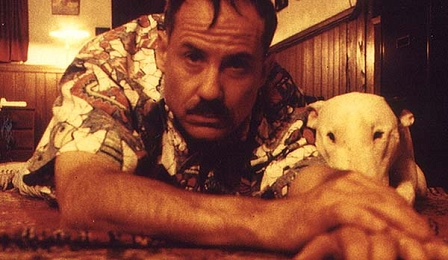
Fischerfilm
Der Patient Pop
Lana Del Rey, Sängerin, über die kommerziellen Qualitäten ihrer Songs
A lot of my songs are not just simple verse-chorus pop songs – they're more psychological (...) They were like: „None of these songs are good for radio and now you're slowing them down when they should be speeded up.“ But for me, my life was feeling murky, and that sense of disconnectedness from the streets is part of that.
(The Guardian)
Mark Fisher, Kulturkritiker, über die Stagnation des Pop
Man fragt sich, warum es keinen Kreativitätsschub gibt. Weil Sie noch immer Zeit brauchen, die Möglichkeit, sich zu versenken, um kreativ zu sein. Und Sie brauchen ein Publikum, das sich absorbieren lässt. Aber niemand von uns hat Zeit, sich von irgend etwas absorbieren zu lassen. Und wenn wir die Zeit zum Absorbiertwerden erzwingen, müssen wir mit all unseren Gewohnheiten brechen, die wir in den vergangenen zehn Jahren angenommen und in den letzten fünf – mit dem Aufkommen von Smartphones – noch intensiviert haben.
(Konkret)
How To Dress Well, Musiker, über ironische Zitate im Pop
Ironie ist der Tod der Seele. In meiner Musik gibt es keinen Raum für Kitsch. Sie ist kein Spiel, mit dem ich genauso gut auch wieder aufhören könnte.
(Spex)
Lana Del Rey, Sängerin, über ihren Widerwillen auf Tour zu gehen
Family members will come on the road with me and say: „Wow, your life is just like a movie!" And I'm like: Yeah, a really fucked-up movie.
(The Guardian)
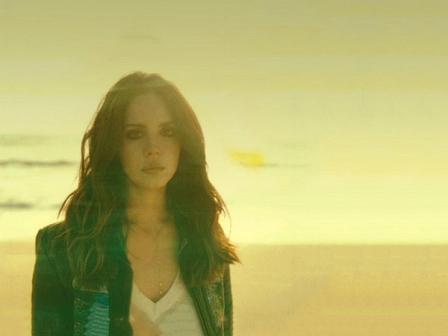
Lana Del Rey
Burn, Hollywood, burn
J.J. Abrams, Regisseur, über den Verfall des Blockbusterkinos
„Franchise“ is a word that until recently only applied in fast food restaurants, but now is being applied to various spheres, including in film, and without the slightest irony. I think it’s disastrous, personally.
(SoFilm Magazin)
Alejandro Jodorowsky, Regisseur, über das kommerzielle Kino
Movies are a big industry and everyone wants money. And they do that for money. When you do these things for money, you don’t have an art, you have an industry. It’s a funny thing, an amusing thing. But you take heroin, you have fun, and you die. You have fun with the business picture, you have fun but you are an idiot. It’s a world of idiots.
(Film Comment)
Gary Oldman, Schauspieler, über Treffen mit seinen Fans
I’ve learned over the years that people get upset when they tell you something is their favorite movie and you go, „Really? You liked that piece of shit?“
(Playboy)
Alejandro Jodorowsky, Regisseur, über sein neues Filmprojekt
I will do it next year but with my money. I’ve saved this money for 30 years, and I am doing this in order to lose it. I want to lose the money! It’s a picture I’m doing to lose money, not to gain money. And I will try to give it away for free.
(Film Comment)
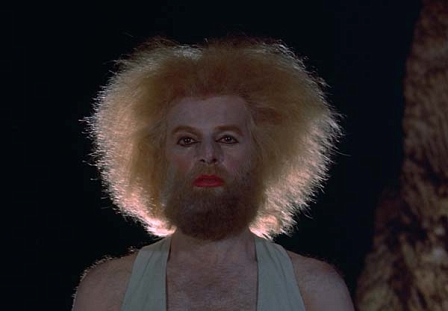
Bildstörung
Storytelling revisited
Robert McKee, Drehbuchguru, über das aktuelle Serienwunder
Ich möchte nur hervorstreichen, dass die besten amerikanischen Drehbücher der letzten beiden Jahrzehnte nicht für Filme, sondern fürs Fernsehen geschrieben wurden. Sogar noch vor The Sopranos. Die Qualität der TV-Autorenschaft hat einfach alles im Filmbereich übertroffen.
(Vice)
James Ellroy, Autor, über seinen Beruf
I came of age when being a writer was a big deal. Now everyone’s a writer, due to the internet. Half the people in LA are writing screenplays that’ll never get made. I want to secure my literary legacy despite being more and more flummoxed by cyberspace, the internet and the dissolution of the civil contract.
(ShortList)
Robert McKee, Drehbuchguru, über die Zukunft des Geschichtenerzählens
In diesem Jahrhundert werden wir sehen, dass die Kathedralen des Geschichtenerzählens zu langformatigen Meisterwerken werden - mit höchst komplexen Figuren, vielen Nebenhandlungssträngen, unzuverlässigen Realitäten, und das alles ist ineinander verwoben.
(Vice)
James Ellroy, Autor, über aktuelle US-TV-Serien
I like the form, in fact I love the form. I watch TV shows at a friend’s house most Friday nights. I think „Deadwood“ and „Mad Men“ were intermittently quite wonderful, but often shoddy and veered into incoherence. I saw one or two episodes of „The Wire“ and thought it was bullshit. Bad writing. And I have no sympathy for the underclass.
(ShortList)
Robert McKee, Drehbuchguru, über seine Lieblingsserie
Meiner Meinung nach ist die beste TV-Serie bis zum heutigen Tag Breaking Bad. Als ich damals Tony Soprano analysiert habe, erschien er mir wie ein 12-dimensionaler Charakter. Walter White hat beinahe 16 bis 18 Dimensionen! Das ist die wahrscheinlich komplexeste Figur, die jemals geschrieben wurde—wirklich jede Form von Medium mit eingerechnet. Sie konnte sich über 5 oder 6 Staffeln generieren. Als die letzte Folge gezeigt wurde, wussten wir wirklich alles über Walter White und sein Alter Ego Heisenberg.
(Vice)
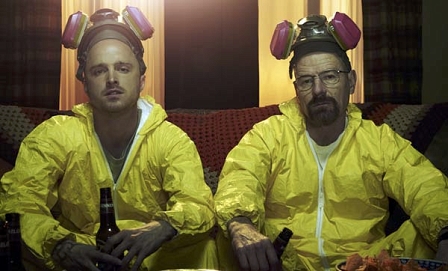
AMC
Kultur-Apokalypse Now
Mark Fisher, Kulturkritiker, über fehlende digitale Utopien
Unser Begriff des Digitalen ist heute sehr eng. Das Digitale wurde praktisch von der Telekom-Industrie übernommen. Wenn Sie heute an etwas Digitales denken, denken Sie an Kommunikationsanbieter. In den Neunzigern dachten wir an Sampler, Zeitdehnung, das Auslösen neuer Empfindungen und Klangerlebnisse. Heute denken wir an Gesichtstechnologien, die uns in uns selbst zurückzwingen. Das, was mein Freund Kodwo Eshun den »banalen Cyborg« nennt. Bis in die Neunziger hinein hat man mit Cyborg eine andere Spezies assoziiert. Heute sind wir alle Cyborgs, aber auf öde Art.
(Konkret)
John Waters, Regisseur, über aktuelle Formen jugendlicher Rebellion
I’m reading „We Are Anonymous“, the book about the hackers, which is the only way for a bad kid today to be sitting home causing trouble, by shutting down Mastercard. The only problem is that there is no fashion. These people don’t see the light of day, they are in their bedrooms, their parents leave them food outside their doors.
(SoFilm Magazin)
Mark Fisher, Kulturkritiker, über die Lüge der Kreativät
Die große Lüge des Neoliberalismus ist, dass die Menschen kreativ werden, wenn man ihnen die Sicherheit nimmt. Die Menschen werden kreativ, aber auf beschränkte und erbärmliche Weise: in ihrer Suche nach Geld. Der Gegenvorschlag wäre: Schaut, der Neoliberalismus hat uns unsere Sicherheit genommen, er hat uns in einen Zustand permanenter Angst befördert. Das ist keine Freiheit. Er hat außerdem mehr Alltags- und Arbeitsüberwachung gebracht, als es jemals gegeben hat. Wir brauchen ein gewisses Maß an Sicherheit, das ist die Basis für wirkliche Freiheit. Wir sollten nicht akzeptieren, dass es entweder Langeweile und Sicherheit oder Erregung und Angst gibt. Letztlich ist es so aufregend nicht, ständig in Angst zu leben.
(Konkret)
Gary Oldman, Schauspieler, über die Gegenwart
I think we’re up shit creek without a paddle or a compass. Culturally, politically, everywhere you look. I look at the world, I look at our leadership and I look at every aspect of our culture and wonder what will make it better. I have no idea.
(Playboy)
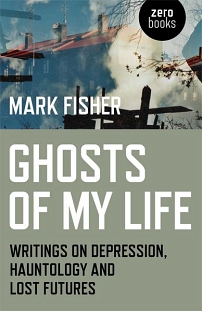
Zero Books
Mark Fisher, Kulturkritiker, über die Erschöpfung im digitalen Zeitalter
Es ist wichtig, dass es dabei nicht nur um Technologie geht. Ich spreche lieber vom kapitalistischen Cyberspace. Stellen Sie sich Smartphones in einer Welt vor, in der wir keine prekär Beschäftigten wären, nicht endlos gehetzt durch streng befristete Verträge oder weil wir als Selbständige ständig um Aufträge baggern müssen. Aber auch wenn Sie festangestellt sind – Prekarität bezieht sich nicht nur auf befristete oder informelle Arbeit, es ist etwas, das in jede Faser unseres Lebens eingedrungen ist. Es gibt kein Gefühl von Stabilität und Sicherheit mehr, nirgends. Jeder muss sich jederzeit anpreisen, nur um seinen Job zu behalten. Der gnadenlose und theoretisch grenzenlose Druck durch digitale Technologie, die Tatsache, dass wir jederzeit kontaktierbar sind, führt dazu, dass wir uns in einem Zustand niedriggradiger Angst befinden. Diese neue Art Angst ist mit Lust gekoppelt. Das Smartphone brauchen wir nicht nur für die Arbeit, der Zwang ist auch lustbezogen. Die Angst ist die Kehrseite einer Zwangslust, und deshalb ist es so schwierig zu widerstehen und daraus auszubrechen.
(Konkret)
Süßer Vogel Jugend
Nick Cave, Musiker, über seine Kindheit
Nothing happened in my childhood — no trauma or anything. I just had a genetic disposition toward things that were horrible.
(New York Times)
George R.R. Martin, Autor, über seine Kindheit
We never had a car. My father always said that drinking and driving was very bad, and he was not going to give up drinking [laughs]. My world was a very small world. For many years I stared out of our living-room window at the lights of Staten Island. To me, those lights of Staten Island were like Shangri-La, and Singapore, and Shanghai, or whatever. I read books, and I dreamed of Mars, and the planets in those books, and of the Hyborian Age of Robert E. Howard's Conan books, and later of Middle-earth – all these colorful places. I would dream of those places just as I dreamed of Staten Island, and Shanghai.
(Rolling Stone)
Gary Oldman, Schauspieler, über jugendlichen Narzissmus
The kids honestly believe they are the center of the fucking universe. But then they get out into the real world and it’s like, “Shit, maybe it’s not all about me,” and that leads to narcissism, depression and anxiety.
(Playboy)
Nick Cave, Musiker, über seine frühen künstlerischen Ambitionen
I had huge artistic ambitions as a kid. I liked a lot of the tortured, gothic, religious stuff - Matthias Grünewald and Stefan Lochner and the Spaniards - and I wanted to make paintings with that kind of power. There was something about just being in a room by yourself and making art that excited me.
(New York Times)
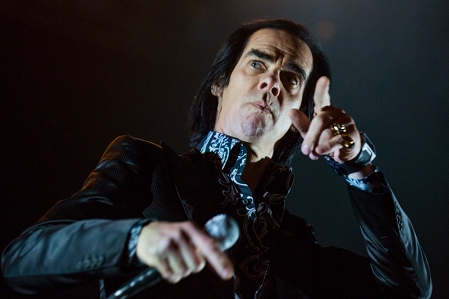
Franz Reiterer
The kids are (not) allright
Nick Cave, Musiker, über die Musikvorlieben seiner Kinder
My kids are at that lovely age where they’re just figuring out what’s good in music. They’re just grabbing stuff, on Spotify and all that, and occasionally they’ll find something that’s really mind-blowing. But sometimes I hear what they’re playing, and I just want to cut my wrists.
(New York Times)
Gary Oldman, Schauspieler, über Filmabende mit seinen Kindern
I’m trying to give my sons an education about movies as well. You sit there and watch a comedy, let’s say „Meet the Fockers“, and it’s Robert De Niro. You tell them this guy was at one time considered the greatest living actor. My boys look at me and say, “Really? This guy? He’s a middle-aged dad.“
(Playboy)
John Waters, Regisseur, über aktuelle Formen jugendlicher Rebellion
I’m reading „We Are Anonymous“, the book about the hackers, which is the only way for a bad kid today to be sitting home causing trouble, by shutting down Mastercard. The only problem is that there is no fashion. These people don’t see the light of day, they are in their bedrooms, their parents leave them food outside their doors.
(SoFilm Magazin)
Nick Cave, Musiker, über Filmnächte mit seinen Kindern
We used to have something called inappropriate-film night. I’d sit my boys down and show them something no sane father would ever show his young sons - „Dawn of the Dead“, something that scared the hell out of them - and it was a wonderful bonding moment.
(New York Times)
Brooke Candy, Rapperin, über ihre Generation
Alles, was wir wollen, ist nur einen Knopfdruck entfernt. Du wünschst dir was und klick, bekommst du es serviert. Wir haben Möglichkeiten, von denen die Generationen vor uns nur träumen konnten, aber zu dem Preis, dass wir praktisch abgestumpft sind. Wir sind wie betäubt, weil wir uns ununterbrochen mit Kram füttern lassen, vom Fernsehen, mit Musik, die uns konstant in den Kopf gehämmert wird.
(Interview Magazin)
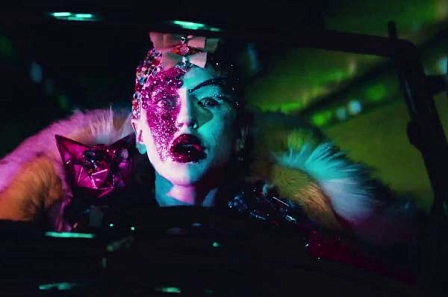
Universal
I see a darkness
George R.R. Martin, Autor, über die Bösewichter in „Game of Thrones“
The more I write about a character, the more affection I feel ... even for the worst of them. Which doesn't mean I won't kill them.
(Rolling Stone)
Lana Del Rey, Sängerin, über ihre Depressionen
I wish I was dead already (...) I don't want to have to keep doing this. But I am (...) That's just how I feel. If it wasn't that way, then I wouldn't say it.
(The Guardian)
George R.R. Martin, Autor, über die Gnadenlosigkeit seiner Bücher
There are some people who read and want to believe in a world where the good guys win and the bad guys lose, and at the end they live happily ever after. That's not the kind of fiction that I write.
(Rolling Stone)
Lana Del Rey, Sängerin, über ihren Durchbruch
I never felt any of the enjoyment. It was all bad, all of it.
(The Guardian)
David Cronenberg, Regisseur, über quälende Erinnerungen
I’ve never really been that into the idea of ghosts, because I don’t believe in them. But the idea of being haunted by memories… that is very real for me. I understand that completely. I lost my parents many years ago, and I can say that, yes, I’m haunted by them and I can hear them and I can see them and I can feel them. I don’t think of them as ghosts who actually exist somewhere, but they do exist in my memory and my mind.
(Eye For Film)
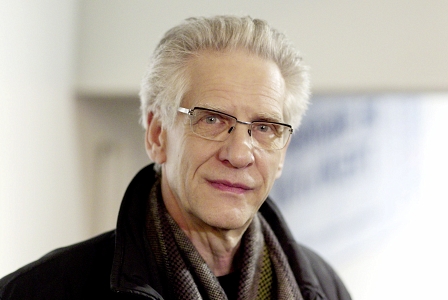
Robert Newald
A History of Violence
George R.R. Martin, Autor, über die Gewalt in „Game of Thrones“
Taking human life should always be a very serious thing. There's something very close up about the Middle Ages. You're taking a sharp piece of steel and hacking at someone's head, and you're getting spattered with his blood, and you're hearing his screams. In some ways maybe it's more brutal that we've insulated ourselves from that. We're setting up mechanisms where we can kill human beings with drones and missiles where you're sitting at a console and pressing the button. We never have to hear their whimpering, or hear them begging for their mother, or dying in horrible realities around us. I don't know if that's necessarily such a good thing.
(Rolling Stone)
John Waters, Regisseur, über Gewalt im Film
A crazy person, a schizo person, who hears voices, can watch a Disney movie and say „that tree told me to kill somebody“. So, does violence desensitise people? I don’t believe it does. I don’t think the audience is that stupid.
(SoFilm Magazin)
George R.R. Martin, Autor, über Vergebung
One of the things I wanted to explore (...) is the whole issue of redemption. When can we be redeemed? Is redemption even possible? I don't have an answer. But when do we forgive people? You see it all around in our society, in constant debates (...) Is Woody Allen someone that we should laud, or someone that we should despise? Or Roman Polanski, Paula Deen. Our society is full of people who have fallen in one way or another, and what do we do with these people? How many good acts make up for a bad act? If you're a Nazi war criminal and then spend the next 40 years doing good deeds and feeding the hungry, does that make up for being a concentration-camp guard? I don't know the answer, but these are questions worth thinking about.
(Rolling Stone)
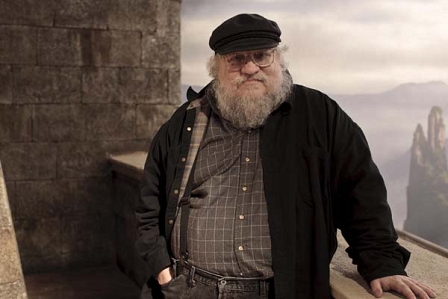
HBO
Geschichten vom Zentralfriedhof
Peter Rapp, Entertainer, über seinen Auftritt bei der Veranstaltung "Klassiker der Trauermusik"
Das musikalische Programm wurde vom Verein der Friedhofssänger gestaltet. Der Mensch sollte vor dem Sterben keine Angst haben. Beim Geborenwerden fragt einen ja auch keiner, ob man Angst hat. Das Einzige, wovor ich mich fürchte, ist, ein Pflegefall zu werden. Ich hoffe, dass mir das erspart bleibt.
(Profil)
George R.R. Martin, Autor, über Botschaft von „Game of Thrones“
Truth is sometimes hard to hear. Two of the central phrases are true, but they are not truths that most human beings like to contemplate. „Winter is coming“ and „Valar morghulis“ – all men must die. Mortality is the inescapable truth of all life ... and of all stories, too.
(Rolling Stone)
Erich Lessing, Fotograf, über den Tod
Es ist noch keiner zurückgekommen und der Moment des Sterbens ist wahrscheinlich nicht erklärbar und nicht erzählbar. Ich hatte einen Herzinfarkt, der Rettungsarzt holte mich zurück. Ich weiß kaum etwas davon. Die Frage ist: Was hab ich davon erlebt, was meine Umgebung? Wahrscheinlich macht beides zusammen gar nichts aus. Weil das, was man nicht mehr erlebt, war schon in einer anderen Welt. Man muss da aufpassen, dass man nicht ins Pseudoreligiöse abgleitet.
(Der Standard)
David Cronenberg, Regisseur, über seine Faszination mit dem Tod
Most people you know, if you live long enough, will die. If you have children, they too will die - hopefully after you. This is a very heavy existential moment, and sooner or later it will happen. Who knows why I react to all this by dealing with it in my movies. I suppose that makes me a prime candidate for the existentialist club because you have to be willing to look into the abyss.
(Eye For Film)
Peter Rapp, Entertainer, über sein Nahtot-Erlebnis
Ich war zwei Minuten lang herztot. Man fragt mich immer wieder, ob ich das berühmte weiße Licht gesehen habe. Nein, sage ich, ich sah eine gewaltige Muschi und wollte hineinkriechen, weil sich damit mein Lebenskreis geschlossen hätte. Da kam ich raus, da gehöre ich wieder hinein.
(Profil)
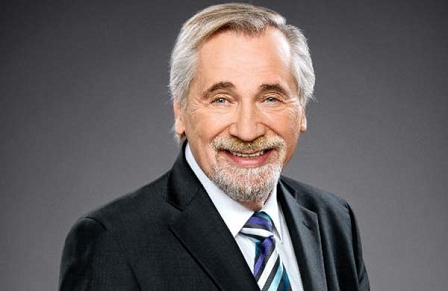
ORF
Licht am Ende des Tunnels
Erich Lessing, Fotograf, über das Andenken an seine im KZ ermordeten Verwandten
Ich glaube, man sollte versuchen, sein Leben in ständigem Gedenken an die zu führen, die nicht mehr da sind und die ermordet wurden – aber doch sein eigenes Leben aufbauen. Wenn man ständig in der Vergangenheit lebt, lebt man nicht.
(Der Standard)
How To Dress Well, Musiker, über ironische Zitate im Pop
Es gibt sie immer noch, die Risse und Schlupflöcher in einer alles durchdringenden Simulation, in einer anti-humanen, kapitalistischen Realität.
(Spex)
Erich Lessing, Fotograf, über seinen Optimismus
Es geht darum, was man aus dem Leben macht, welchen Teil des Lebens man voll lebt, wo man an Möglichkeiten vorbeigeht. Das Leben bietet uns eine Unmenge von Möglichkeiten, glücklich zu sein und auch unglücklich zu sein, zu schauen und zu sehen. (Der Standard)
How To Dress Well, Musiker, über subversive Unterwanderung
Mir geht es mehr um Transgression, um die Überschreitung einer bestehenden Ordnung, die mit ihren eigenen Mitteln verändert wird. Liebe und Sympathie sind für mich von ungeheurer Bedeutung. Wir müssen an ihre Möglichkeiten glauben, wenn wir nicht alle untergehen wollen.
(Spex)
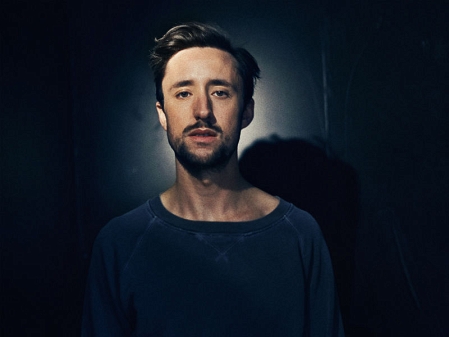
Zachary Michael

